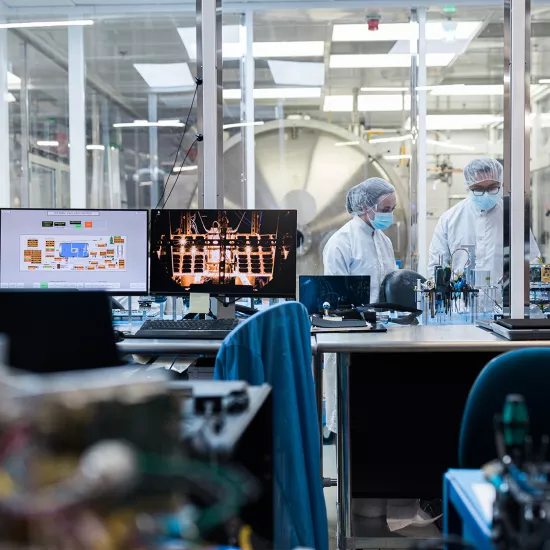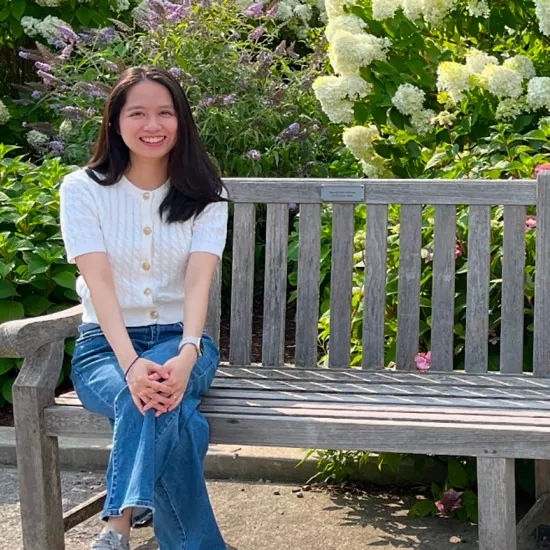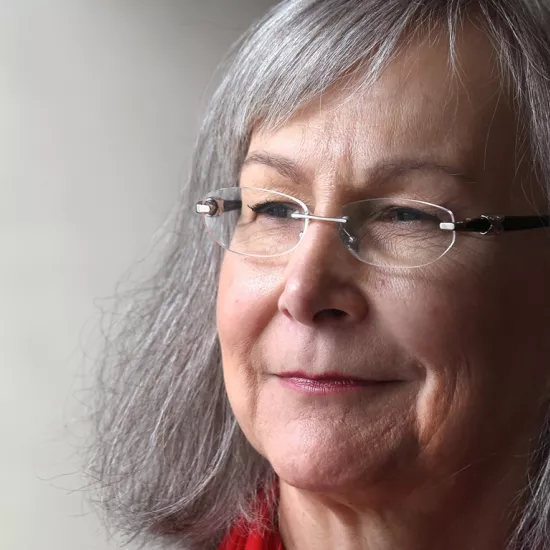Retired judge Marion Buller advises students to ask questions, seek truth and be brave
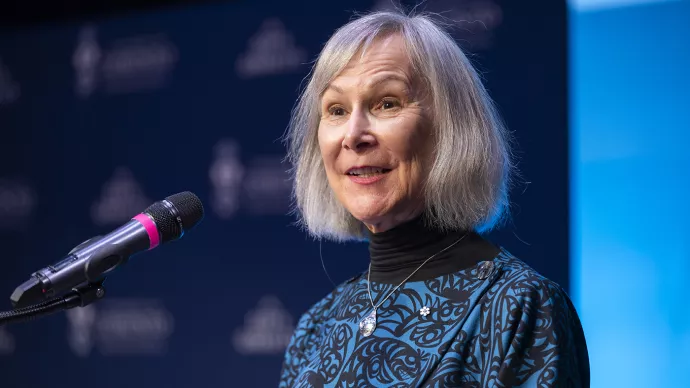
“We miss opportunities because we fear getting it wrong,” retired British Columbia judge Marion Buller told a capacity crowd at U of T Mississauga’s Mist Theatre during her recent talk, “Thinking Out Loud Together.”
The Jan. 20 event was a discussion on fostering understanding and part of U of T’s ongoing exploration of civil discourse. The talk also included opening remarks from Alexandra Gillespie, U of T vice-president and U of T Mississauga principal, and a Q&A between Buller and Randy Boyagoda, U of T’s provostial adviser on civil discourse.
Buller advised those gathered in the theatre and tuning in online that if you come to a conversation with a good heart and you’re honest and respectful, you can’t do or say anything wrong.
“We are all human and we might disagree, but we also have a lot in common,” said Buller, who was the chief commissioner of the National Inquiry into Missing and Murdered Indigenous Women and Girls.
She said that a career’s worth of interactions as a lawyer and judge showed her that, at heart, all most people want is to be recognized for their humanity. “They wanted someone to listen to them, to really hear them, to see them. To acknowledge them as human beings.”
Sharing differing opinions, done respectfully, can even yield positive results. “We don’t have to all think the same way – if we did there would be no innovation or invention.”
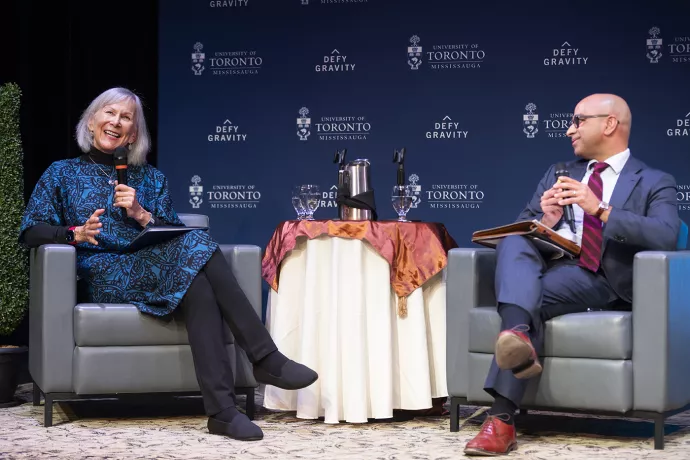
A member of the Mistawasis Nêhiyawak, a Cree First Nation in Saskatchewan who, Buller also touched on history and the Indigenous experience in Canada. She shared that hearing stories from her own grandfather, who was a residential school survivor, and from those who testified at the national inquiry, made her angry.
“This is not the Canada I learned about in school,” she said, citing darker points in the country’s past, including the rights-limiting Indian Act, Chinese head tax, internment camps during the second world war and the rejection of the S.S. Komagata Maru. “This stuff was not in the books. We only had the sanitized version, and this is not the Canada I want my grandkids and nieces and nephews to learn. I want them to learn the truth.”
She encouraged the talk’s attendees to seek truth, but always approach it with the right intentions. And be mindful of the language being used, she said, giving the example of her own preference for the word ‘reconstruction’ over ‘reconciliation’ in relation to Indigenous rights.
“Reconciliation is making amends, not rebuilding.” she explained, while reconstruction is about starting at the beginning to rebuild in a more positive way. “Reconstruction takes thought and energy.”
Despite how difficult and uncomfortable some conversations can be, they are necessary, and the one thing we shouldn’t do, she said, is stop talking. Ask questions, listen, consider, and be open to being wrong, she advised. And be brave.

